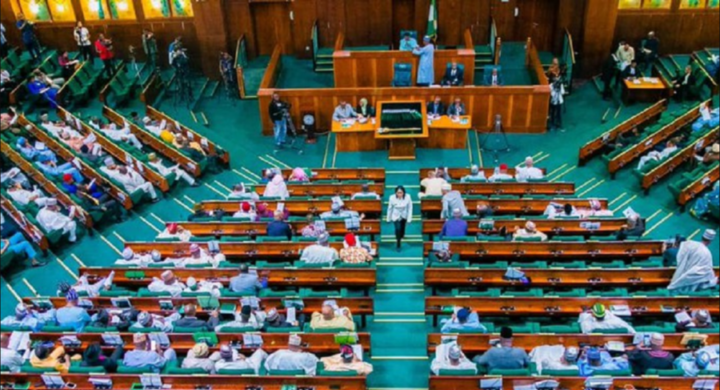The House of Representatives has launched an investigation into the $35 million modular refinery project initiated by the Federal Government, following concerns over transparency, funding irregularities, and the project’s stalled progress. Lawmakers expressed dissatisfaction with the handling of the initiative, which was intended to boost local refining capacity and reduce the nation’s heavy dependence on imported petroleum products.
During a plenary session in Abuja, members of the House Committee on Petroleum Resources (Downstream) resolved to summon key government agencies and stakeholders involved in the project, including the Ministry of Petroleum Resources, the Nigerian Content Development and Monitoring Board (NCDMB), and the Nigerian National Petroleum Company Limited (NNPCL). The probe seeks to uncover why the project, despite significant funding and repeated assurances, has yet to deliver tangible results.

Chairman of the committee, Hon. Ikenga Ugochinyere, said the decision was prompted by reports that several modular refineries funded through government-backed facilities have either not taken off or are operating below capacity. He stressed that Nigerians deserve full accountability for the funds disbursed and that every dollar spent must be justified with measurable output.
“The House is deeply concerned that despite millions of dollars already expended, there has been little or no progress in the modular refinery project. We must determine the status of these projects, how funds were utilized, and why Nigeria continues to rely on fuel imports despite repeated government promises of self-sufficiency,” Ugochinyere stated.
The lawmaker noted that modular refineries were introduced as part of the government’s strategy to decentralize refining, create jobs, and curb the smuggling of petroleum products. He said the refineries were also expected to contribute to local content development and attract private investment to the downstream oil sector. However, reports indicate that most of the licensed modular refinery operators have struggled to access funds or face regulatory bottlenecks.
According to available information, the $35 million project under probe was meant to be developed in partnership with private investors under the supervision of the NCDMB and the Petroleum Ministry. The facility was expected to refine between 5,000 and 10,000 barrels of crude oil per day, contributing to Nigeria’s efforts to meet domestic fuel demand. But years after its launch, there are no clear signs of progress on-site, sparking questions about contract execution and oversight.
In a motion adopted by the House, members expressed concern that the continuous failure to complete modular refineries has forced Nigeria to rely heavily on imported refined petroleum products, further straining foreign exchange reserves and increasing pump prices. The lawmakers noted that, despite the completion of the Dangote Refinery and the ongoing rehabilitation of state-owned refineries, modular refineries remain critical to achieving energy security and regional supply stability.
The House Committee on Public Accounts is also expected to collaborate with the downstream committee to trace the financial flow of the project. Lawmakers are determined to ascertain whether the funds were properly disbursed or diverted. They insisted that the investigation must cover all institutions and contractors involved in the modular refinery scheme since its inception.
Several legislators, while debating the motion, expressed disappointment over what they described as recurring inefficiency in Nigeria’s oil infrastructure development. Hon. Bamidele Salam noted that “for a country endowed with vast crude oil reserves, the inability to refine enough fuel locally represents a major policy failure.” He urged the committee to recommend sanctions against any official or contractor found culpable.
Industry experts have also weighed in, describing the House probe as timely and necessary. They argue that modular refineries, if properly executed, could serve as a game-changer in addressing Nigeria’s energy crisis. Analysts say that smaller, cost-effective refining plants can be rapidly deployed to process crude oil locally, reducing logistics costs and curbing smuggling to neighboring countries.
Energy consultant, Dr. Kenneth Aigbe, explained that “modular refineries provide flexibility and efficiency. However, without transparency in funding and regulation, the sector cannot thrive. This probe is an opportunity to clean up the system and restore investor confidence.”
The House resolution further directed that all relevant documents — including feasibility studies, project agreements, payment records, and progress reports — be submitted to the investigative committee within two weeks. Lawmakers also called for field inspections to verify claims made by implementing agencies and contractors.
Public reaction to the development has been largely positive, with civil society groups and transparency advocates urging the National Assembly to ensure the investigation is thorough and unbiased. The Socio-Economic Rights and Accountability Project (SERAP) emphasized that the probe should not end with reports but must lead to legal and administrative actions where misconduct is uncovered.
In the meantime, the Petroleum Ministry has maintained that the government remains committed to the modular refinery initiative, adding that several projects across the Niger Delta are at various stages of completion. However, the House insists that only verifiable evidence of progress can restore public trust in the initiative.
As Nigeria continues to grapple with fuel import dependence, foreign exchange shortages, and high energy costs, the success or failure of modular refinery projects could significantly shape the country’s path toward energy independence. The House probe, therefore, marks a critical step in ensuring that public investments in the oil and gas sector deliver real value to Nigerians and strengthen the nation’s refining capacity.
Support InfoStride News' Credible Journalism: Only credible journalism can guarantee a fair, accountable and transparent society, including democracy and government. It involves a lot of efforts and money. We need your support. Click here to Donate
